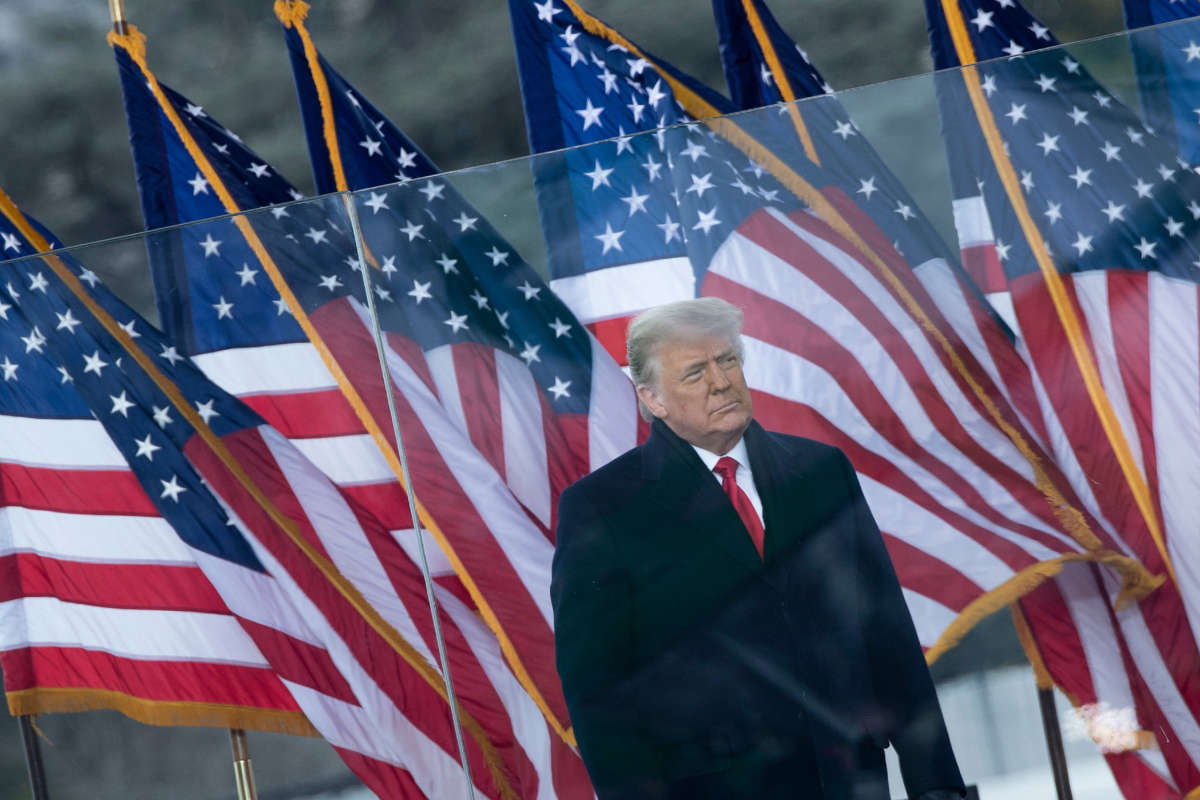The House select committee investigating the January 6, 2021, attack on the U.S. Capitol building filed a court briefing on Wednesday alleging that former President Donald Trump and his associates engaged in a “criminal conspiracy” to overturn the 2020 presidential election.
The filing was made in response to a lawsuit from Trump’s former lawyer John Eastman, who has alleged that he cannot comply with a subpoena order from the committee because of attorney-client privilege. Such legal privilege is not generally recognized by courts as enforceable if attorneys help their clients partake in criminal behavior, however.
The filing represents the strongest indication yet from the January 6 commission that Trump and his allies may have committed crimes in the months after he lost the 2020 presidential election.
“Evidence and information available to the Committee establishes a good-faith belief that Mr. Trump and others may have engaged in criminal and/or fraudulent acts, and that [Eastman’s] legal assistance was used in furtherance of those activities,” the filing from the committee says.
The committee also made direct reference to the plot to use fake electors to manipulate the outcome of the 2020 election, which was facilitated by Trump’s campaign staff, along with his personal lawyer Rudy Giuliani. Trump and his associates “obstructed a lawful governmental function by pressuring the Vice President to violate his duty to count the electoral certificates presented from certain States,” the filing said. “As an alternative, they urged the Vice President to delay the count to allow state legislatures to convene and select alternate electors.”
“The Select Committee is not conducting a criminal investigation,” a joint statement from committee chair Rep. Bennie Thompson (D-Mississippi) and vice chair Rep. Liz Cheney (R-Wyoming) said, but privilege claims from Eastman “raise the question whether the crime-fraud exception to the attorney-client privilege applies in this situation.”
“The facts we’ve gathered strongly suggest that Dr. Eastman’s emails may show that he helped Donald Trump advance a corrupt scheme to obstruct the counting of electoral college ballots and a conspiracy to impede the transfer of power,” they added.
The committee also suggested that Trump publicly claimed that election fraud had altered the outcome of the 2020 presidential race despite knowing that this was a lie.
Citing an interview with a former Trump associate, the committee writes that campaign data experts “told the President ‘in pretty blunt terms’ that he was going to lose” after the polls closed in 2020. In spite of those assessments, Trump pressed forward with his plan and continued to push lies about the election; this ultimately resulted in a mob of his loyalists attacking the Capitol on the day that Congress certified the Electoral College.
The select committee is not empowered to press criminal charges against any individual, including the former president or his allies. However, it can make recommendations to the Department of Justice (DOJ) to charge him or any of his associates, if it appears that they engaged in federal crimes.
We have 10 days to raise $50,000 — we’re counting on your support!
For those who care about justice, liberation and even the very survival of our species, we must remember our power to take action.
We won’t pretend it’s the only thing you can or should do, but one small step is to pitch in to support Truthout — as one of the last remaining truly independent, nonprofit, reader-funded news platforms, your gift will help keep the facts flowing freely.
